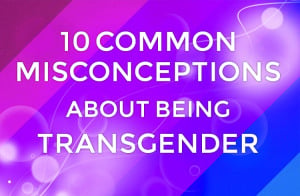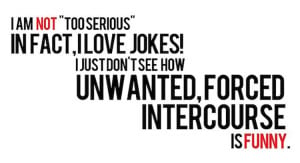I swear, if I had a dollar for every time a stranger asked me if I had tattoos or piercings in secret places, I’d have enough money to purchase my next tattoo.
I’m still relatively new at the tattoo game, having received my first tattoo just over two years ago, but since then, I’ve gained eleven other pieces and a greater understanding of what it’s like to be modified in 2016.
Whether it’s getting tat-called on the street, turned away from potential jobs, or verbally or physically violated by drunk strangers at dive bars, being tattooed as a woman puts your body on a platform for public examination.
Of course, women without body modifications are continually sexualized and judged by perfect strangers a million times a minute but willingly submitting to branch outside of society’s idealized representation of beauty comes with its own unique set of consequences.
While for the most part, being tattooed has brought positivity to my life by allowing me to fully express my true identity and introducing me to countless incredible fellow tattoo collectors, it’s also opened my eyes to the everyday challenges that face modified young women.
When it’s a summer day and I’m wearing a tank top, I can count on receiving some disapproving looks from people on the street. On the flipside, I’m bound to have a total stranger scream “nice tats!” at me through their car window.
If I’m planning to go for a more adventurous hair color or get a new visible piercing, in the back of my mind, I need to consider that a future (or current) employer won’t approve of the choices I’ve freely made for my own body.
And that’s what makes this a feminist issue. Here are just a few of the many reasons why.
1. People Assume You’re a SuicideGirl Before They Even Talk to You
I by no means have any personal digressions with alternative modeling as a whole, but I have a huge problem that this is the most common way tattooed women are represented in the media.
Since the 1920s and ‘30s, during an age of carnival freak shows and burlesque performances, tattooed women have been put on display for the sexual taboo of their modified bodies to largely male audiences.
Tattooed women have been literally painted as mysterious sexual objects designed for the male gaze since the age of prohibition – and little has changed in almost 100 hundred years.
Tattooed women are largely absent from television, film, and print publications, with the extreme exception of nude or nearly nude glamour models. Tattoo magazines and websites, such as SuicideGirls, have exploded over the course of the 21st century, largely because of the hot tattooed women posed seductively across their pages. And this has created an overlying assumption that all tattooed women are only good for looking sexy.
SuicideGirls may have been a groundbreaking for the time, but we already know that tattooed women are capable of being sexy – and we’d like to see our diversity as a demographic represented more accurately.
The site is almost 100% white, cisgenderable-bodied women with slender physiques. And in general, this is the case for many tattoo modeling agencies.
Further, while SuicideGirls may arguably be the most popular medium of tattoo model, the company has faced its fair share of scandals. From the stringing along “hopefuls” for years with no guarantee of becoming an official site model, to the Richard Prince lawsuit, it’s safe to assume that investing thousands of dollars in photoshoots for the site may do more harm than good.
The road to understanding and normalizing tattoos in our society has certainly been a slow journey, from an outlawed and discouraged practice to the new normal. Yet while our society’s acceptance of tattooing as a whole has evolved, the stereotype of tattooed women hasn’t budged.
Stereotypes are created on behalf of a narrow beam of representation cast upon a homogenized group – and it’s about time that tattooed women are appreciated in ways beyond physical sexuality.
Studies have shown that there’s no scientific correlation between tattoos and women’s promiscuity, but the stereotype still continues to manipulate the general public’s perception of tattooed women as a whole. The abuse of the identity of the tattooed women has to be stopped.
2. Do We Really Need to Wear Shirts That Says ‘Don’t Touch My Tattoos?’
Picture this: I’m in Florence, Italy at a bar with my roommates when a complete fucking stranger grabs my tattooed arm from behind and nearly twists it out of its socket to look at my tattoos.
Now, to the average person this would be quite alarming, yet tattooed women have come to accept it as their daily routine.
Being physically violated in public something that many tattooed women have dealt with at some point or another – and it’s about time that people realize that tattooed women are not public property for you to grope without their consent.
Tattoos are works of art. But unlike a painting, we are human beings. No matter how “artificial” our skin may look, we’re not objects – and we deserve to have physical privacy respected.
It’s not flirting. It’s not your being friendly. And I should not feel complimented by your interest in my art. It’s an invasion of privacy that extends beyond my having tattoos.
Men have long assumed power over women and their bodies, from virginity pledges to intimate partner violence. And a man touching a woman’s tattoos without her permission is just another way that the patriarchy seeks to enforce archaic and dangerous gender roles.
Men touch women’s tattoos because they think that they can, because they think that women’s bodies are theirs for the conquest.
Men need to know boundaries, both with tattooed and un-tattooed women, and realize that their unwarranted affections are straight-up harassment.
3. The Tattoo Industry Is a Man’s World – Period
Tattooing started off as a trade dominated by men, and to this day, men continue to claim power in nearly every aspect of the industry.
Having a career as a tattooer isn’t easy, but female tattooers are presented with battles that their male co-workers will never have to deal with.
As Siena College professor Beverly Yuen Thompson so elegantly puts in her book, Covered in Ink, “[I]n male-dominated occupations, […] the cultural atmosphere is decidedly masculine, which may be uncomfortable or chilly for women.”
Second-wave feminists paved the way for women in the workforce, but they’ve faced an increased amount of discrimination and harassment in those spaces, especially in trade professions like tattooing.
Like being a carpenter or a hair stylist, tattooers make a living off of trading their skills for monetary compensation with clients, and as such, they build their reputations based on artistic mastery of their craft.
Tattooers are required to apprentice and learn from experienced tattoo artists, building their skills and developing a professional reputation with the tattoo shop. And although tattooing is regulated in terms of health standards yet no regulations exist for protecting artists against hazing – thus the stakes for female artists entering the industry are even higher.
While all genders tend to experience certain levels of hazing under the management of some tattoo parlors, the circumstances are different for women and other gender minorities entering the male-dominated profession of tattooing.
Women are almost automatically pegged as outsiders in tattooing. This may mean going the extra mile to prove their artistic competency against their lesser qualified male co-workers, or even going as far as to “act more masculine” in workplace environments.
But discrimination doesn’t end at gender within the tattoo industry; race has also been the cause of harassment within tattooing.
In addition to being a largely male-dominated profession, up until the 1980s tattooing was specifically a white male-dominated industry. And sadly, in addition to women being minorities within “mainstream” tattooing, tattooers of color are, too.
Looking back on the history of tattooing, it by no means was started solely by European artists, but also by people of Asian, African, South American, Aboriginal, and Samoan origins and each culture has created their own styles independently.
Today, we see many tattooers of color within the tattoo industry. But the problem lies with the unspoken segregation between white artists and artists of color.
Artists of color – and more specifically, black tattooers – have developed their own community within the tattoo industry and have expressed their artistic identities through mediums such as magazines like Urban Ink, Black Ink, and Sista Ink, as well as through VH1 reality show, Black Ink Crew.
It’s plain for anyone to see that there’s a huge gap between white tattoo artists and tattoo artist of color, to the point where “black tattooing” nearly defined its as a style in itself. And this is why you hardly see tattooers of color or tattoo models of color represented within the “mainstream” tattoo industry – because there’s an assumed understanding that these two cultures are to be kept separate.
Thus despite the advancements that both the tattoo industry as well as the women’s rights and civil rights movements have made, it is still difficult for many of the more traditional tattooers within the industry to make room for female artists or artists of color.
4. Employers Use Body Mods to Discriminate Against Potential Employees
This past summer, I was growing tired of my job in the fast food industry and was looking for something with a little bit less kitchen grease and a bit more fashion forwardness to add to my resume.
I, of course, applied to a handful of my favorite retailers, and with five years of previous retail experience under my belt, I was pretty hopeful that I’d be able to move on to a new career very quickly.
Only problem was that I had bright green hair and facial piercings at the time, and I was told time and time again in interviews that if I wanted the job, I would have to dye my hair a more natural color, cover my tattoos, and take out my facial piercings.
And being the headstrong earth sign that I am, I decided that I would rather stick it out in my current establishment for a few more months than change my freshly dyed hair in order to adhere to their appearance policies. Yet sadly enough, not all workers have received the same privileges that I have.
In October of 2014, an article surfaced featuring Charlotte Tumilty, teaching trainee who was told to either cover her tattoos with bandages or face immediate termination.
Tumilty had been hired by a Catholic school, but despite “passing her interview,” she was sent home on her first day on the job. Other cases like Tumilty have surfaced in which employees have been asked to resign or have been terminated based on their body modifications (Starbucks and Apple being two prime examples), yet there aren’t any legal protections prohibiting employers from discriminating based on body modifications.
In addition, there’s absolutely no correlation between professional performance and personal expression, yet companies still maintain dress codes. Among many other issues with dress codes, they also limit tattooed individuals’ ability to be employed because they’re stereotyped as improper for a workplace environment.
For an employer to terminate an already hired employee because of their appearance is downright wrong, yet it happens every day for modified people.
Like other counterculture revolts of the past, we as millennials are at a cultural standstill against the baby boomer generation when it comes to body modifications in the workplace. The older generation still holds on to the stereotype of tattooed individuals that existed during their generation, and we’re fighting to prove that the allegations and expectations set on the young and modified are simply untrue.
Why is it fair for someone else to determine whether or not a person’s appearance is appropriate, strictly based on their own personal preferences and ethics? Why are we continuing to submit to the expectations of the older generation and accepting their scrutiny for daring to defy society’s standards of beauty through body modification?
There aren’t easy solutions to these problems for modified people in the workplace. But hopefully by pushing our message of equality to the masses, we can start to see a more universal standard of expression-based acceptance.
***
Tattooed women have a long way to go before gaining complete acceptance and equality within our society.
We deserve to be treated as more than sexual playthings for male enjoyment, acknowledged as humans before objects, and appreciated both within tattoo shops and the workforce.
It’s about time that we stop associating tattooed individuals with the rebellious, promiscuous, and unprofessional stereotype that has carried for decades.. Tattoo acceptance is a changing process – and a feminist fight for equality at its core.
[do_widget id=’text-101′]
Devon Preston is a blogger, tattoo-collector, vegan, and wannabe unicorn drag queen living in Bernie Sander’s stomping grounds of Burlington, Vermont. Devon is currently completing her BA in Journalism at Hofstra University, but plans to attend graduate school in 2017 to pursue a PHD Women’s and Gender studies. In addition to writing for Everyday Feminism, Devon has written for Inked Magazine, Tattoodo, Tattoo Artist Magazine, and The Offbeat Bride. Devon’s work seeks to shed light onto the daily lives of tattooed individuals as well as investigate the politics body modification in our modern society.
Search our 3000+ articles!
Read our articles about:
Our online racial justice training
Used by hundreds of universities, non-profits, and businesses.
Click to learn more
Most Read Articles
- « Previous
- 1
- …
- 30
- 31
- 32




















